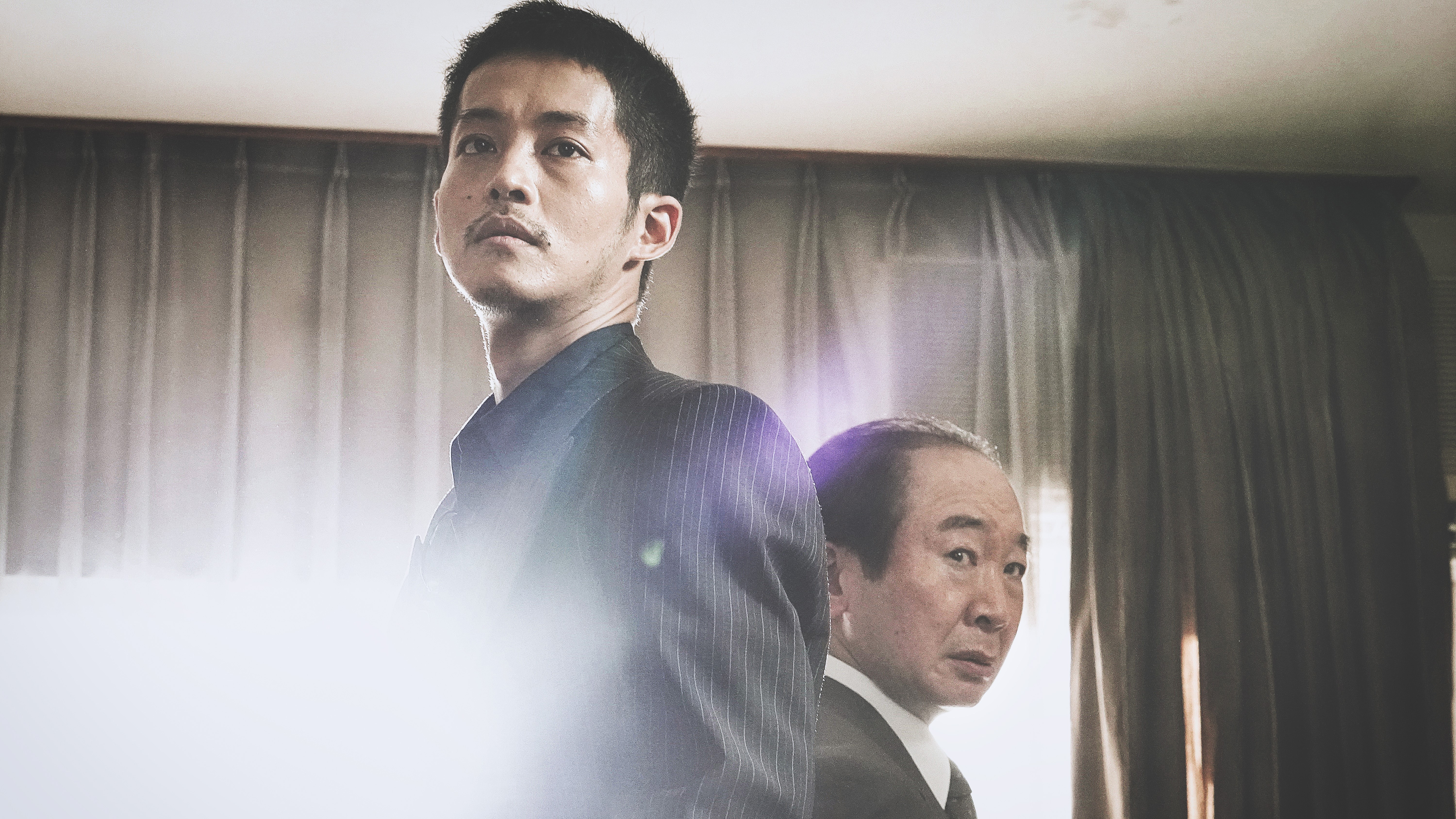What to Watch Verdict
A battle between two old guard forces would have been better served by a film that didn’t hold pretense of following up one of the best crime thrillers of recent years.
Pros
- +
🐺 A vicious villain.
- +
🐺 A killer third act.
Cons
- -
🐺 An inert protagonist.
- -
🐺 Feels beholden to what came before instead of building upon that foundation.
Any film purporting to be a sequel to the excellent The Blood of Wolves was going to face an uphill battle in keeping its quality consistent with its forebear. Not only was it an exemplary film that balanced juvenile violence with a heartbreaking story of corruption and personal sacrifice, but that story hinged on the death of its most compelling character, which would force any continuation to find a new angle through which to explore its world of yakuza land wars and police indifference. Last of the Wolves, helmed by returning director Kazuya Shiraishi and once again adapting the work of novelist Yûko Yuzuki, has the right idea of forcing the formerly straight-laced Hioka (Tôri Matsuzaka) into the dirt-stained role of his mentor Ogami. However, this time it just can’t quite sell the same alchemical balance of heart and violence.
After three years of the peace established by Hioka and Ogami at the end of The Blood of Wolves, Hioka continues Ogami’s legacy as a reputably dirty cop who ingratiates himself with the yakuza of the Odani clan in order to keep their power from running rampant. That balance is upset when a prominent member of the rival Irako-kai clain, Uebayashi (Ryôhei Suzuki), is released from prison and starts a murderous spree of revenge against the Odani, even going so far as to betray the leaders of his own complacent clan to achieve satisfaction. What starts as Hioka's routine murder investigation of a piano teacher quickly evolves into a search for sufficient evidence to prevent the eruption of a full-on gang war.
Uebayashi is a formidable antagonist for a film set up to be a battle between the last two badasses of the old guard. He’s ruthless and capable of changing moods at the drop of a hat, with Ryôhei Suzuki giving off an air of unapproachable malice. Most of the film’s violence is creditable to this character; gone is the shock humor of testicular torture, and in comes the gruesome spectacle of gouged eyeballs and nude prisoners collared in cages. This makes for an overall darker experience than The Blood of Wolves, which isn’t unwarranted, but it does lay bare the vital element missing from Last of the Wolves in its sequelizing aspirations.
Though Hioka is a decidedly more jaded and world-weary character now, his characterization doesn’t live up to the promise of the previous film’s final moments. Hioka hasn’t so much become Ogami as hardened enough to inherit his mess, and though he has managed to keep the peace for three years, the burden it has had on his ability to form interpersonal relationships has suffered. This isn’t an inherent fault. In fact, it's a dimension of the character the film purports to explore while only paying lip service. However, it does become an issue as one realizes how inert this supposed protagonist is, relying heavily on supporting characters to drive home who Hioka is through contrast. A criminal informant (Nijirô Murakami) reflects the youthful ideal of justice Hioka once held. Hioka’s new partner on the verge of retirement (Baijaku Nakamura) embodies the unassuming public service Hioka once aspired to. The film seems content for its first two acts to explore the internal lives of anyone but Hioka, especially Uebayashi, skating on your knowledge of the previous film to give its lead any driving pathos and leaving his investigation always one step behind information of which the audience is already aware.
It’s a shame, because the eventual third act delivers on its promise of a showdown with satisfactory car stunts, gunshots, and sword swings. It’s easy to see it as a great climax that a more complete movie would have built up better with a balanced approach to his two main contenders, and it would probably have been better served by a film that didn’t hold pretense of following up one of the best crime thrillers of recent years. The basic elements are there, and Last of the Wolves is still an entertaining, pulpy exploration of gray morality in the conflict between cops and criminals. But one still gets the distinct impression that we already saw the last of the wolves, and what’s being presented here is decidedly more tame.
The latest updates, reviews and unmissable series to watch and more!
Leigh Monson has been a professional film critic and writer for six years, with bylines at Birth.Movies.Death., SlashFilm and Polygon. Attorney by day, cinephile by night and delicious snack by mid-afternoon, Leigh loves queer cinema and deconstructing genre tropes. If you like insights into recent films and love stupid puns, you can follow them on Twitter.


